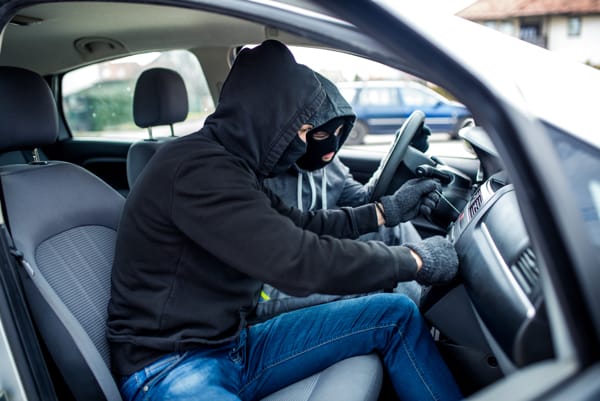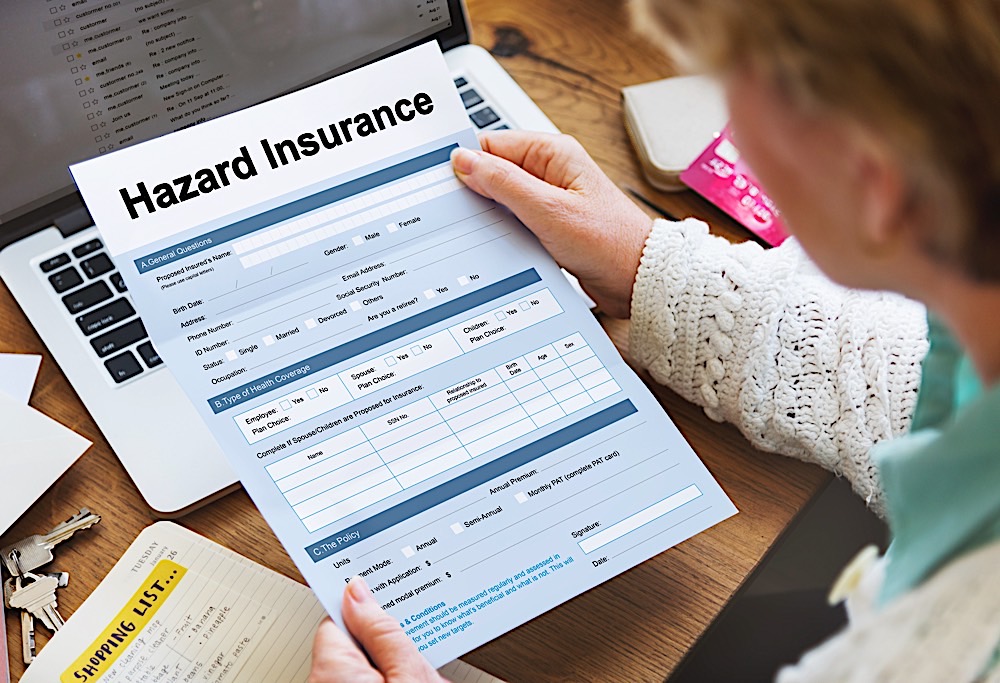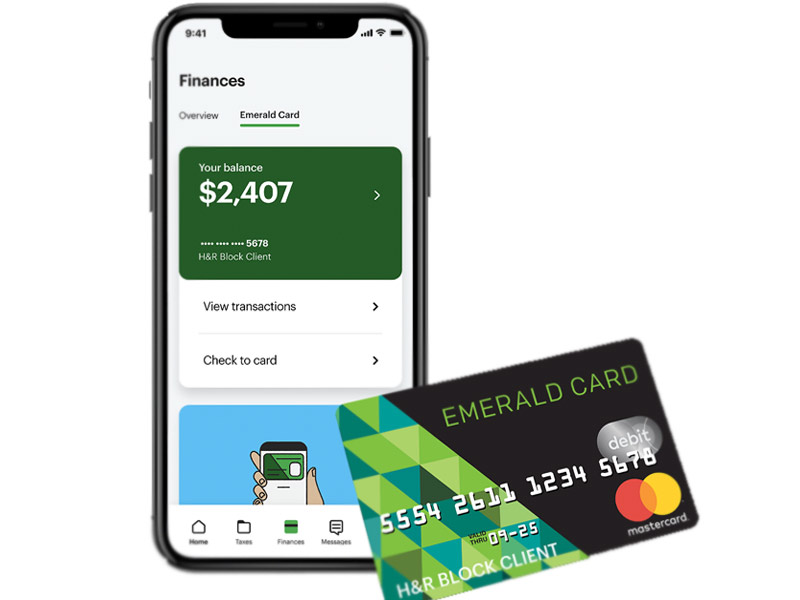To answer your question, what happens when your car is stolen then found, then this is everything you need to know , if you car is stolen.
What Happens When Your Car Is Stolen Then Found?
You should make a claim with your insurance carrier if your car is stolen. Vehicle theft should be covered if you have comprehensive coverage. If the car is later recovered after the claim has been settled, it becomes the property of the insurance company. If this is the case, you still have possibilities for recovering your original vehicle.
What if my Car is found after the claim has been settled?
Your insurance company owns the vehicle if the claim has already been paid. First and foremost, you must report the recovery of your vehicle to your insurance company as soon as possible. In most circumstances, a team will be dispatched to recover the car. Your insurance provider may offer you the option to buy back the car if you haven’t purchased a new vehicle. Because the procedure differs from one business to the next, it’s best to discuss your alternatives with your insurance.
What happens if my car is found while I’m filing a claim?
Contact your insurance carrier right once if your stolen car is found with no visible damage. This will bring the process to a halt and allow your insurance provider to inspect the vehicle for damage and, if necessary, pay for the repairs.
Your insurance provider will pay the real cash value if the vehicle is declared a total loss, just as they would if the automobile was stolen. Your deductible would apply in both cases and would be deducted from the claim payout.
Who owns the contents of a reclaimed vehicle?
In most circumstances, personal objects within your vehicle are not covered by your auto insurance policy. Items stolen from inside a car are usually covered by renters or homeowners insurance. Even if your automobile is recovered, the goods inside are still yours, even though the car is now the insurance company’s property.
If you have custom parts and equipment (CPE) coverage, your policy may also cover the cost of bespoke parts or modifications. Depending on your insurance, comprehensive and collision coverage may pay up to a particular amount for unique items, but any damage above that value necessitates CPE coverage. Upgrades and modifications to your car, such as rims or a bespoke stereo system, are covered under this policy. This coverage will pay the additional replacement cost of certain goods if your car is stolen, up to a certain level.
According to the National Highway Traffic Safety Administration (NHTSA), more than 700,000 drivers have their automobiles stolen each year, costing Americans $6 billion and resulting in a stolen vehicle every 43.8 seconds.
To have your car snatched, it appears that you don’t have to live in one of the top cities for auto theft or own one of the most stolen vehicle models. Anyone with a set of wheels is in danger.
So, what should you do if your vehicle is stolen?
When your car isn’t where you expect it to be, follow these few steps
Check to see if your vehicle has been stolen.
Of course, you’re taken unaware. “My car was stolen,” you murmur as you pace. “What the hell is going on?”
“Does insurance cover stolen car?” you type into your phone’s search engine.
Before you call 911 or study up on how to make a bad hex for a car thief, you could save yourself some shame and check your vehicle has really been stolen
“My eyes couldn’t believe what they were seeing. My car had just vanished. A thousand thoughts raced through my head. Is it locked? Is it possible that I left a window open? How did it get into the hands of a thief? I went to the campus police station to report my stolen automobile, only to find out that it had been impounded for improper parking. Whoops.”
Granted, time is of the essence, so pull out your phone (hopefully you didn’t leave it in the car) and dial 911 if you’re certain.
If your car is stolen, what should you do?
Police should be notified about the stolen vehicle.
When you’ve determined that your car has been stolen, call the cops right away to report it. Not only will the police report be useful afterwards, but it will also allow law enforcement agents to keep a watch out for the stolen vehicle. You’ll need to be ready to provide them a lot of details about the car and where it was last spotted.
Make contact with your motor insurance company as well as your lender.
Following the police, this should be your next step. Penny Gusner, a consumer analyst with Insurance.com, recommends calling promptly after filing a police complaint. “If you wait too long, it can appear suspicious.”
If your car is financed, you must also tell your lender. It’s only a suggestion; nonetheless, you’ll still have to pay your bills. Sorry, but theft has no bearing on the amount owing to your bank. It’s for this reason why lenders insist on comprehensive and collision coverage. Whether you have a car in the driveway or not, your obligation to the financial institution ceases only when the loan is returned.
Even if you only have liability insurance, Gusner recommends calling your insurance provider to protect yourself if the thief damages other people or property with your vehicle. Typically, if you weren’t careless, you won’t be held liable for the thief’s damage.
Have the following information on hand when you contact your insurer:
The date and timing of the robbery
The vehicle’s location, as well as the location of all of the car’s keys and the title to the vehicle
Anyone who has access to the vehicle’s name and contact information
Detailed description of the vehicle and its state at the time it was taken
If the car is financed, you’ll need the contact information for your financing firm.
Number of the police report
Immediately notify the Department of Motor Vehicles (DMV)
Notifying the Department of Motor Vehicles is the next critical step. The DMV maintains a stolen car database. This database ensures that you don’t have any future ownership or title difficulties with the vehicle, and it’s especially essential if the vehicle is stolen and someone tries to register it.
Look for potential CCTV recordings.
Security cameras are commonly installed outside of companies of all types in this age of continually developing technology. To put it another way, in most cities, someone is keeping an eye on you. This could be in a parking lot or garage, on the street, or even near a camera-equipped ATM. It’s worth checking with any businesses near where you parked to see whether the car thief was captured on video.
Using a GPS tracking gadget, you can keep track of your vehicle.
New automobiles are technologically advanced. Many of these can assist the cops in finding your vehicle. The OnStar system from General Motors and Toyota’s Safety Connect are two examples. Hyundai’s Blue Link system can assist authorities in tracking down the vehicle and possibly cut engine power to slow it down.
Many new cars have comparable features; ask the cops if yours can assist you in finding it.
Some pay-as-you-drive vehicle insurance plans, which track your mileage and driving habits, include GPS tracking as a means of dispatching roadside help or summoning an ambulance. They can also assist in the recovery of a stolen vehicle.
Others, such as Progressive’s Snapshot, don’t even use GPS.
Finally, if you purchased an aftermarket tracking device such as LoJack, now is the time to use it. Not only do auto insurance reserve the largest anti-theft discounts for systems that actively find a stolen vehicle, but some manufacturers will also refund the cost of the gadget or even pay you a settlement if the vehicle isn’t returned.
When I report my automobile as stolen, what happens next?
Whether or not your vehicle is recovered determines what occurs next.
What if your vehicle is stolen and never recovered?
As you might assume, once you phone the cops, they’ll come to your location and take a report from you. Give them the VIN and license plate number, as well as a full description of the car. The cops will take down any pertinent information, and the search will begin.
The big question you’ll be asking yourself is, “Will I ever see my stolen car again?” Will the cops hold me accountable for my back seat? When I went on that road trip, there were a bunch of fast food wrappers and a couple of empty bags of chips back there…
We’ll see what the cops say about your back seat, but your chances of seeing your stolen car again are… eh. Not bad, but not great either.
When Progressive Insurance looked at its auto insurance claims a few years ago, they discovered that around 46% of stolen cars were recovered across the country. State-by-state recovery rates differed significantly. Your prospects are favorable if you live in Washington, which has a 71 percent recovery rate. In Michigan, not so much (19 percent ). Based on more current statistics, the NHTSA claims slightly greater recovery rates. According to the report, 59 percent of stolen vehicles are recovered.
The police will enter your vehicle’s information into state and national databases, making it more difficult for criminals to sell it.
What if you file a comprehensive claim for your stolen car, purchase a new one, and then your old one is discovered?
What happens if your vehicle is stolen and subsequently discovered?
If your stolen vehicle is discovered, contact your insurance company right once. If the thieves managed to get a few new dents on your car, Comprehensive will cover the cost of repairs. You’d be responsible for the deductible amount.
Most insurance companies need a 30-day waiting period before declaring the vehicle permanently lost. After that, your insurer will give you the “fair market value” of your car, which is the amount that an identical car would sell for on the open market. If you can discover comparable values, it’s relatively negotiable.
Your deductible, as well as any debts owing to lienholders, will be deducted from your insurance settlement cheque.
According to Megna, most complete claims will not raise your premiums. Any valuables left in your vehicle, such as a cell phone or laptop, are usually not protected. However, your homeowner’s or renter’s insurance may kick in.
After you settle the claim, it’s possible that your car may be found. If this is the case, the vehicle is owned by the insurance company.
Is theft covered by auto insurance?
What does a car insurance payout for a stolen vehicle entail? It is debatable. It could be a significant amount or nothing at all.
Your vehicle will be replaced if you have comprehensive coverage. You must first pay your deductible, after which your insurance provider will reimburse you for the actual cash value of your vehicle.
“”Buying comprehensive insurance is a lot less expensive than buying liability or collision insurance,” explains Michelle Megna, editorial director at Insurance.com. “It’s also a catch-all term for everything that happens to a car that isn’t a collision: theft, vandalism, fire, even hitting a deer.”
According to pricing statistics from Insurance.com, the average motorist spends $192 per year for comprehensive coverage, however this varies by state and the value and theft history of the automobile insured.
Even if you don’t buy collision insurance, most insurance companies will sell you comprehensive coverage. “I’d call it money well-spent if I drove a theft-prone car like an older Honda,” Megna says.
If you only have liability insurance, we have bad news for you: recovery of the vehicle is your only option. There is no compensation for an automobile that has been stolen.
Additionally, unless you’ve purchased rental reimbursement coverage or your policy includes it, don’t expect a rental to be reimbursed. Even then, you’re usually restricted to a 30-day period with daily restrictions of $25 to $30. So, unless you want to drive around in a rental car eternally, you’ll have to replace your stolen vehicle soon.
Maintain the stolen car’s insurance and loan payments.
Until the lawsuit is settled, you should continue to pay your insurance and automobile payments.
There are a few reasons why you should keep up with your insurance payments.
First, if you plan to replace your automobile, a gap in coverage of more than 30 days will dramatically increase the amount of insurance you’ll have to pay. According to Megna, certain carriers will not insure a driver who is not currently insured.
Second, your personal insurance usually covers you while driving a leased automobile. Otherwise, the rental agency may require you to purchase liability and collision coverage.
Finally, until you suspend the car’s registration, you are required to keep at least liability coverage on it in almost every state.
If you have a car loan, you will also need to continue making payments to your lender.
Get ready for the third level.
If your assertion raises even a smidgeon of suspicion, expect some harsh inquiries. Don’t take anything too seriously.
According to the Coalition Against Insurance Fraud, around $80 billion in fraudulent insurance claims (not only vehicle insurance) are filed each year. A significant majority of car theft claims are what the industry refers to as “owner give-ups” – thefts committed with the insured’s consent.
Investigators may look into your financial history, such as missed payments, as well as your phone records and social media activities. Adjusters frequently record discussions, which might feel like an interrogation at times.
Investigators should be aware of the following potential red flags:
The automobile was just listed for sale.
On a lease, the vehicle has exceeded its mileage limit.
The driver’s license had been suspended recently.
Coverage has recently increased.
Payments that are past due.
The police were not notified, or were not contacted quickly enough.
Another red indicator is refusing to answer investigators’ queries.
So give them as much information as you can, and perhaps they’ll find the thief who stole your automobile. Then you won’t have to worry about issues like “Does auto insurance cover theft?” “What happens if your automobile is stolen and found?” and “What happens if your car is stolen and found?” Instead, ask yourself questions like, “Thanks to my stolen car insurance payout, I’m thinking about what color I want my future automobile to be?” “Is there anything I can do to make sure this doesn’t happen again?” or “Is there anything I can do to make sure this doesn’t happen again?”
And the answer is, of course, to make sure you have stolen automobile insurance.
Having your vehicle stolen is a terrible experience, but it may be made better if you have the correct auto insurance policy.
How to Make Your Car Less Likely to Be Stolen
Here are a few things you can do to make it more difficult for thieves to take your car:
- Always keep your automobile doors locked.
- It’s never a good idea to leave your keys in the car.
- Make sure your valuables are hidden in the car.
- The title should not be left in the car.
- Parking should be done in well-lit and well-known areas.
- Install a vehicle-based anti-theft system.
- Engrave the VIN on the vehicle’s windshield.
- With a GPS tracking gadget, you can keep track of your vehicle.
- Questions that are frequently asked
- What should you do if you come across an automobile that appears to be stolen?
- Report any car that you have cause to believe is stolen to the local police.
What if your car is stolen while you are still owing money?
Unfortunately, even if your automobile is stolen, you must continue to pay for it. If your insurance claim is approved, you can apply the claim check to any outstanding balance. It will be your obligation to pay the difference if the payment amount is less than the amount funded. Check with your insurance agent to determine whether your gap insurance will cover the difference.
How often are stolen vehicles discovered?
According to Statista, 56.1 percent of stolen vehicles were recovered in 2019. However, this does not rule out the possibility of damage to the found vehicles.



